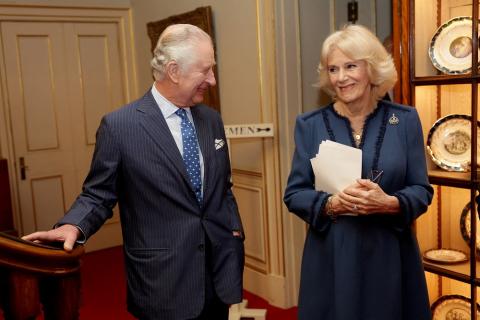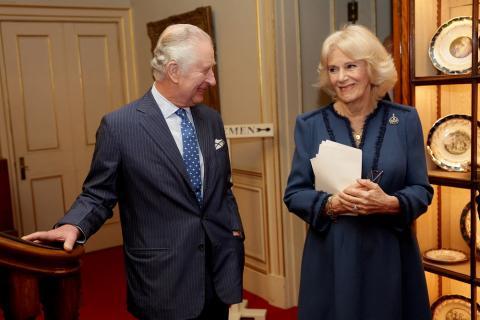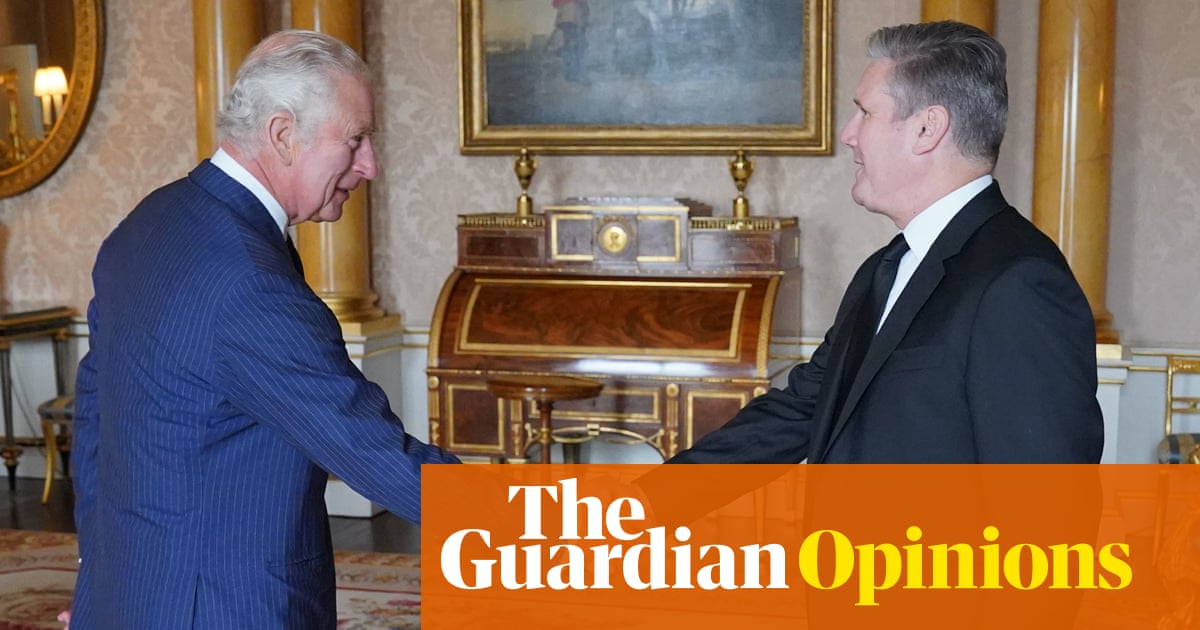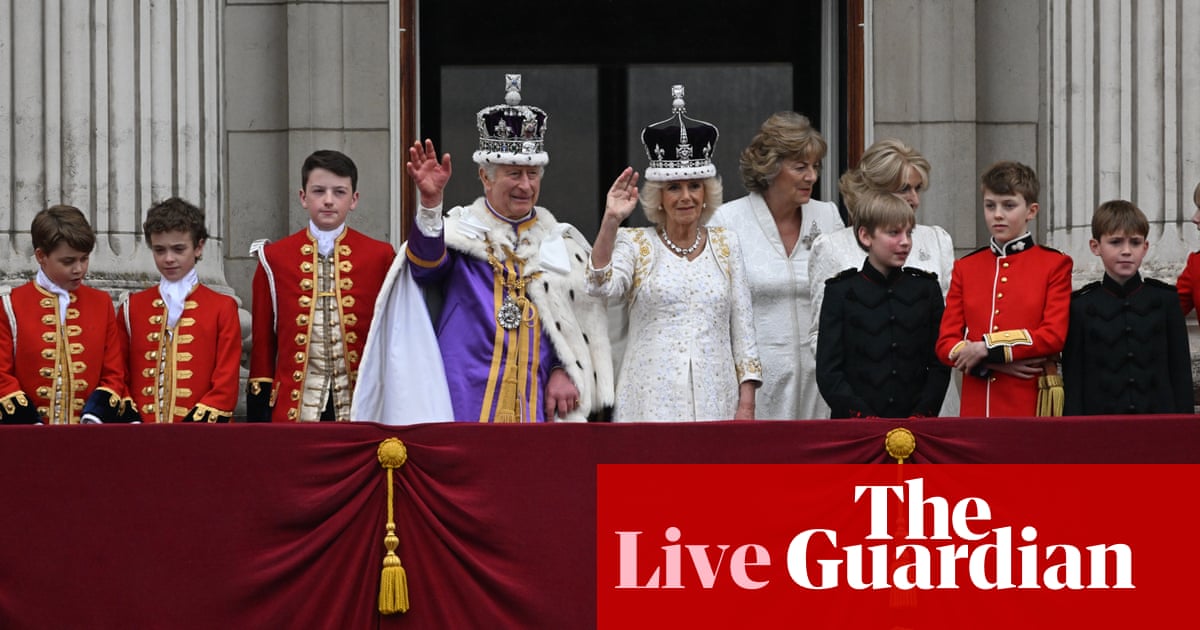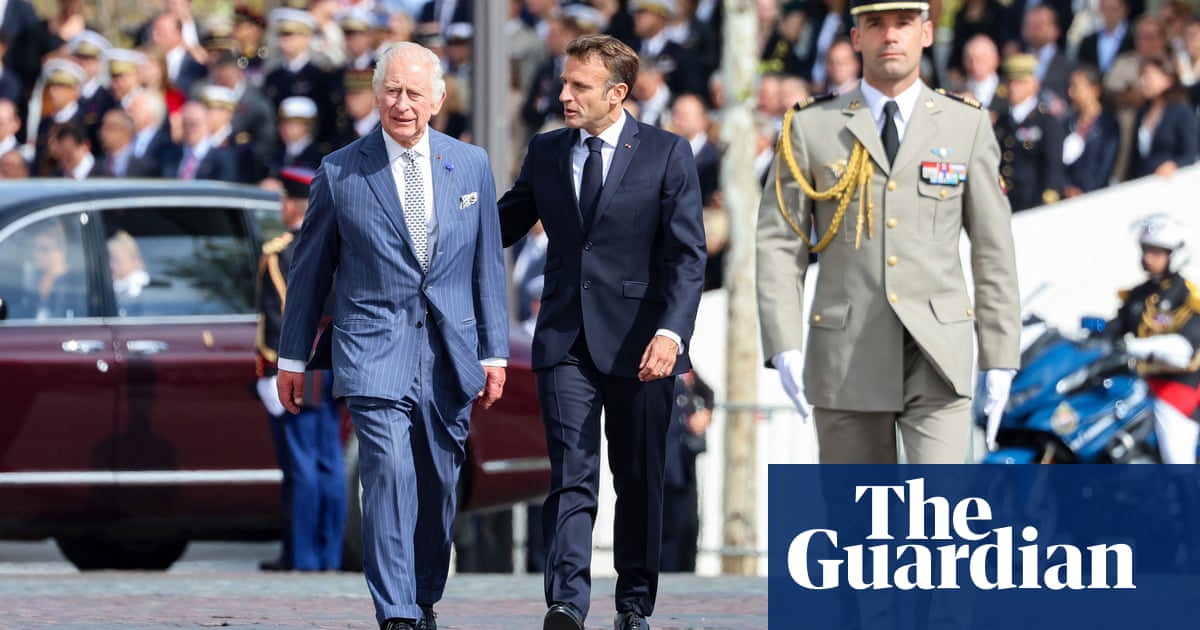
Emmanuel Macron and King Charles will dine on lobster at the Palace of Versailles on Wednesday night during a three-day state visit by the British monarch that marks a crucial reset of the UK-French relationship after the near total collapse in trust of the Boris Johnson years.
At a one-to-one discussion at the Élysée Palace, the king and the French president will discuss the war in Ukraine, military coups in the Sahel region of Africa and the challenges of artificial intelligence.
During his visit, the king will also address French lawmakers at the Senate, view restoration work at Notre Dame Cathedral, meet business leaders to discuss biodiversity at the Museum of Natural History and travel to Bordeaux, where he will meet emergency workers and communities affected by the 2022 wildfires. Queen Camilla and Brigitte Macron will launch a new annual Franco-British literary prize, to be awarded from 2024.
And at a banquet in the Hall of Mirrors at Versailles, a host of celebrities including Hugh Grant, Charlotte Gainsbourg, Mick Jagger, Didier Drogba and the world’s richest person, Bernard Arnault, will sit down to eat with the king and president, the Elysée said.
In a message posted on X, formerly known as Twitter, the royal couple said they were “so looking forward” to their visit to France, “a country for which we both have the greatest love and admiration”.
They added: “We will celebrate the special bond between our two countries and all that your wonderful country has to offer. À bientôt France!” The post was accompanied by a video of the king climbing the steps of the plane that would take him to Paris.
The visit had been due to take place in March but was postponed amid embarrassment on the French side due to mass protests over Macron’s changes to the pensions system. Demonstrators had threatened disruption, with one railway trade unionist urging protests at Versailles, saying: “We have two kings today; one in England and one in France. Let’s all go to Versailles and give them a proper welcome.” The political mood in France has since calmed.
The king’s trip is seen as the “soft power” follow-up to Rishi Sunak’s drive to repair the badly damaged Paris-London relationship at a Franco-British summit earlier this year, which addressed issues such as the crisis of people risking their lives to cross the Channel in small boats.
The mood between France and the UK had plummeted to its worst state in decades, with bitter rows over submarine contracts and fishing quotas, and Johnson’s successor, Liz Truss, at one point saying “the jury’s out” when asked whether Macron – a G7 and Nato ally – was a friend or foe.
The 74-year-old king and 45-year-old French president want to show their own close personal relationship, which the Élysée said was built on “friendship and trust”. They last met at the king’s coronation and have spoken frequently.
When flames engulfed Notre Dame in 2019, the then Prince Charles wrote to Macron describing his heartbreak and offering his help and lessons learned from the Windsor Castle fire in 1992.
The king is a fluent French speaker like his mother, the late Queen Elizabeth II, and although he and Macron switch between English and French, the Élysée said the visit would mostly be conducted in French.
The two men will discuss the climate crisis and biodiversity just as Macron plans in the coming weeks to address domestic criticism that his image of global standard-bearer for the environment is at odds with France lagging behind its own climate targets at home.
“They share the same taste for certain big issues; that’s why the topics of climate and biodiversity are on the agenda. The king is always very interested in the president’s analysis of major international issues,” an Élysée official said.
The banquet at the Palace of Versailles, the seat of the French monarchy and a symbol of the French Revolution of 1789, is the focal point of the visit. It will take place at a 62-metre long table in the Hall of Mirrors, the famed 17th-century gallery built by the “Sun King” Louis XIV to project the power and majesty of the French monarchy.
The choice of Versailles, a royal residence now owned by the French republic and used to host state leaders, including Vladimir Putin of Russia in 2017, was an opportunity “to make France shine” through one of the country’s most-visited monuments, the presidency said.
Charles is “appreciative of the idea of walking in his mother’s footsteps”, the Élysée said, recalling that the late queen and Prince Philip had lunch in the same room at Versailles during their first state visit to France in 1957.
French officials dismissed any potential criticism of monarchical overtones for the president, who has been described as an “elected monarch”. Historians insisted that it was crucial for France to welcome a king in style. The banquet menu, as reported by Le Parisien on Tuesday, will include a lobster and crab starter cooked by Anne-Sophie Pic, and poultry with mushrooms cooked by Yannick Alléno, both Michelin-starred chefs.
Macron’s office said a selection of French and English cheeses would include stichelton, a British blue cheese similar to stilton that uses unpasteurised milk. “Contrary to the often-held view that you can’t find any decent food in England, it’s totally untrue; you can find great products there and especially great cheese,” an Alsatian cheesemonger, Bernard Antony, who made the cheese selection for the royal dinner, told L’Alsace newspaper.
Olivier de France, a research director at the French Institute for International and Strategic Affairs (Iris), said: “These visits, despite some of their pomp and circumstance, are useful symbolically and also politically.” He said Macron and the king were seeking to “burnish their credentials”, Macron needing to clarify his sometimes “blurred” image on the environment and a harder line on Ukraine, and the king in terms of his image, as he is still viewed in France through the image of his ex-wife’s fatal car accident in Paris in 1997.
“Many still see Charles through the prism of Diana. By becoming Charles III, he embeds himself in British history as a monarch, but he still needs to find his feet on the international stage,” he said.
Thomas Gomart, the director of the French Institute of International Relations (IFRI), said: “It’s a very important visit politically because it comes after years of falling out between France and the UK, linked to the fact that the relationship between Johnson and Macron was detestable.”
Gomart said the warmer France-UK relationship marked the start of a new chapter where the priorities were Ukraine, the transatlantic relationship and the British and French roles as permanent members of the UN security council amid the shifting politics of emerging nations, as well as civil and military nuclear power.
Pauline Schnapper, a professor of contemporary British civilisation at Sorbonne University, said the fact that the king would also visit Bordeaux, which has a large number of British residents, was crucial. “The idea of meeting people, and British people living in France, is important as a social and civic dimension – the human face of the Franco-British relationship, which was very damaged by Brexit, people who were extremely affected by the end to freedom of movement.”




